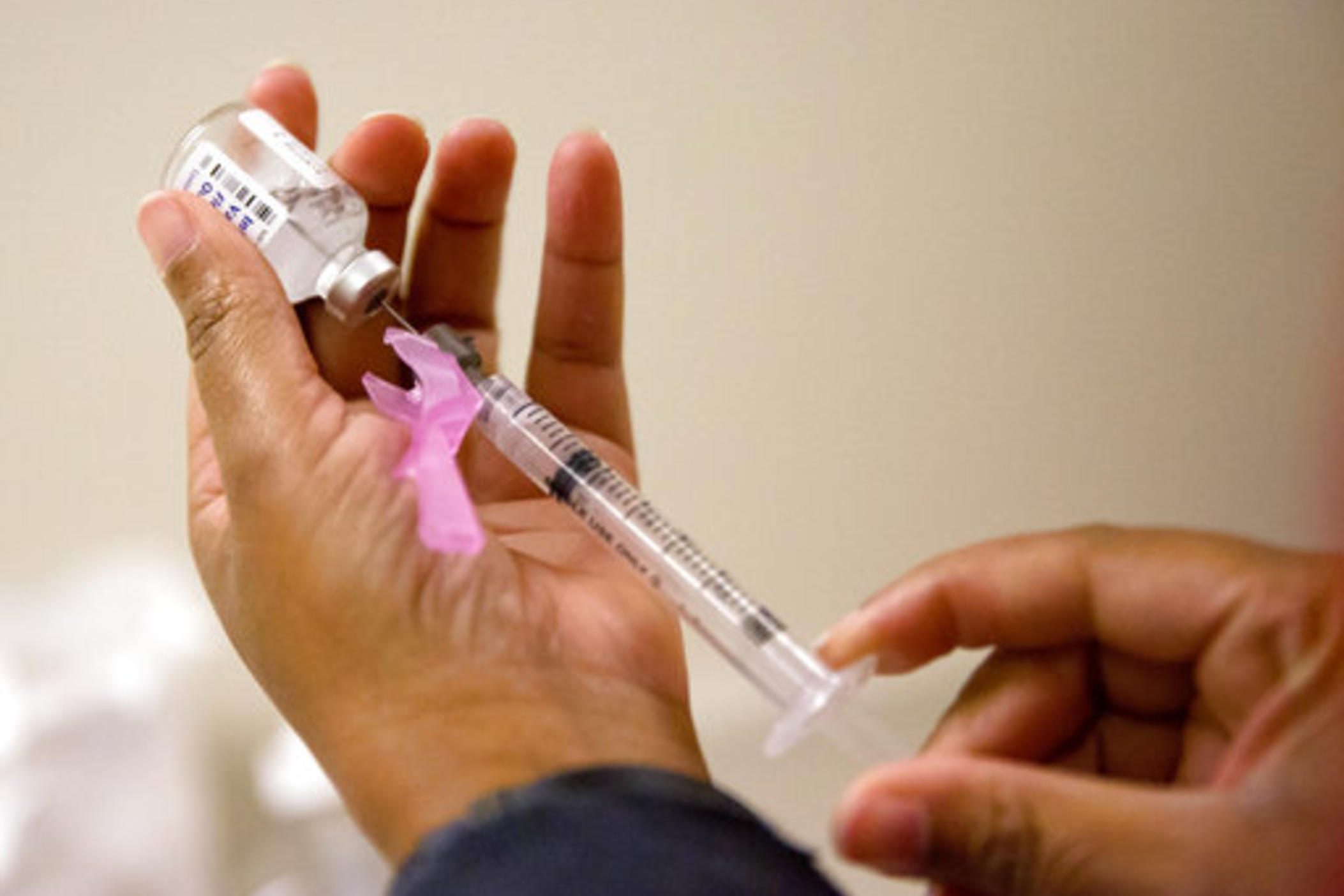Section Branding
Header Content
Holiday travel could prolong respiratory disease outbreaks of flu, RSV
Primary Content
LISTEN: Concerns over high cases of two common respiratory viruses have doctors encouraging vaccinations and precautionary measures leading into the holiday season. GPB's Sofi Gratas explains.
——
Concerns over high cases of two common respiratory viruses have doctors encouraging vaccinations and precautionary measures leading into the holiday season. Doctors are blaming high case rates on “immunity debt.”
RSV, or respiratory syncytial virus, is especially affecting children. It’s highly contagious through close contact and there is no vaccine. Symptoms of RSV can include a runny nose, fever, coughing and sneezing.
Though often mild like the common cold, the virus can be especially dangerous if contracted by infants or newborns.
Also complicating matters is immunity debt: Because of COVID-19 pandemic-related lockdowns, most very young children who are about 2 years old now weren't exposed to RSV like they traditionally would have been and so weren't able to build up an immunity against it.
Seven percent of the just over 2,000 RSV tests conducted in Georgia were positive during the most recent reporting period. That’s lower than weeks past, but health experts, like neonatologist Mitch Rodriguez from Atrium Health Navicent in Macon, warn that a surge could accompany holiday travel.
That doesn’t mean parents should panic.
“We don't want families to avoid coming to the emergency room,” Rodriguez said. “We just want them to use it appropriately.”
Rodriguez said parents shouldn’t seek emergency care unless children have trouble breathing, become dehydrated or experience a worsening cough.
Doctors have said a spike in emergency room visits experienced by hospitals nationwide is a few months earlier than expected. According to the Centers for Disease Control and Prevention, RSV cases typically start in the fall but peak in the winter.
“Essentially what we've seen is that over the last couple of years, as a result of potentially the COVID pandemic and restrictions that we put in place, the typical annual disease ratio has changed,” Rodriguez said.
For example, influenza cases have also spiked earlier than expected. There have been nearly 1,000 flu-related hospitalizations in Georgia since Oct. 8, most of which have been people 65 years and older.
Compared to hospitalizations for influenza-like illnesses at the same time in 2019 and 2020, respectively, hospitalizations this year have doubled, according to the state Department of Public Health weekly influenza report.
Cases of both respiratory viruses in the U.S. are highest in the South, according to CDC surveillance data, followed by the Northeast. For those who travel, Rodriguez said vaccination against the flu is the first key. Vaccines are safe for kids six months and older, but it takes a minimum of two weeks for the shot to provide full protection.
“No. 2," Rodriguez said, "if you're sick, if you have a fever, stay away from family members, especially if you have elderly or very young patients."
The same rules for protection from COVID-19 apply for other respiratory diseases as well: Wash your hands, avoid touching your face and, when in doubt, wear a mask.
Correction
In an earlier version of this article, Dr. Mitch Rodriguez from Atrium Health Navicent in Macon was described as an allergist. He is a neonatologist.


